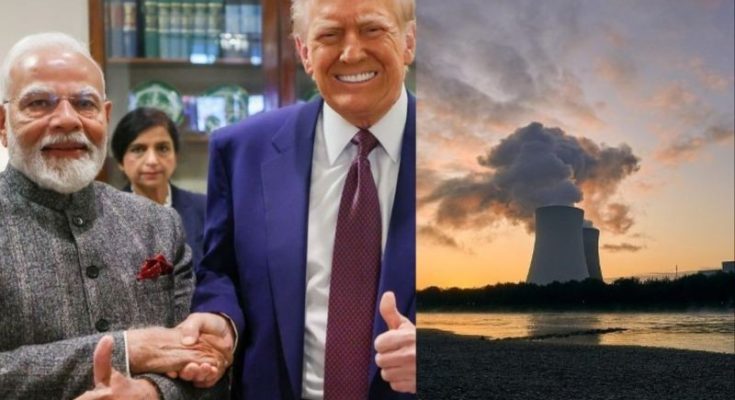#India#US#Nuclear Power Plant#US Department of Energy#Holtec International#Nuclear Deal
New Delhi/IBNS-CMEDIA: In a landmark moment for the two-decade-old India-US civil nuclear deal, the US Department of Energy (DoE) has given the final approval allowing an American company to jointly design and build nuclear power plants in India, media reports said.
Though the overall framework of the India-US civil nuclear agreement was signed way back in 2007 by then prime minister Manmohan Singh and then US president George W Bush, it has taken nearly 20 years of negotiation, detailed discussions, legal and regulatory clearances to finally get the green signal to execute plans.
According to reports, the United States has granted Holtec International regulatory approval to design and build nuclear reactors in India.
The US Department of Energy (DoE) cleared the deal on March 26, marking the first step in unlocking the commercial potential of the 2008 agreement between the two nations.
Approval details and restrictions
Holtec has been authorised to share its Small Modular Reactor (SMR) technology with three Indian firms—Holtec Asia, Larsen & Toubro Ltd, and Tata Consulting Engineers Ltd—under the restrictive US regulation “10CFR810”.
The approval is valid for ten years, with a review scheduled every five years.
However, the US has not extended technology transfer to key Indian government agencies like the Nuclear Power Corporation of India Limited (NPCIL), Atomic Energy Regulatory Board (AERB), and NTPC Ltd, as India has not yet provided non-proliferation assurances for them. Holtec may apply later to include these state-run entities.
US conditions on technology transfer
The US has imposed strict conditions, stating that the transferred technology cannot be shared further without prior approval and must be used solely for peaceful purposes under international safeguards.
Holtec is required to submit quarterly reports to the DoE detailing the specifics of the technology transfer.





